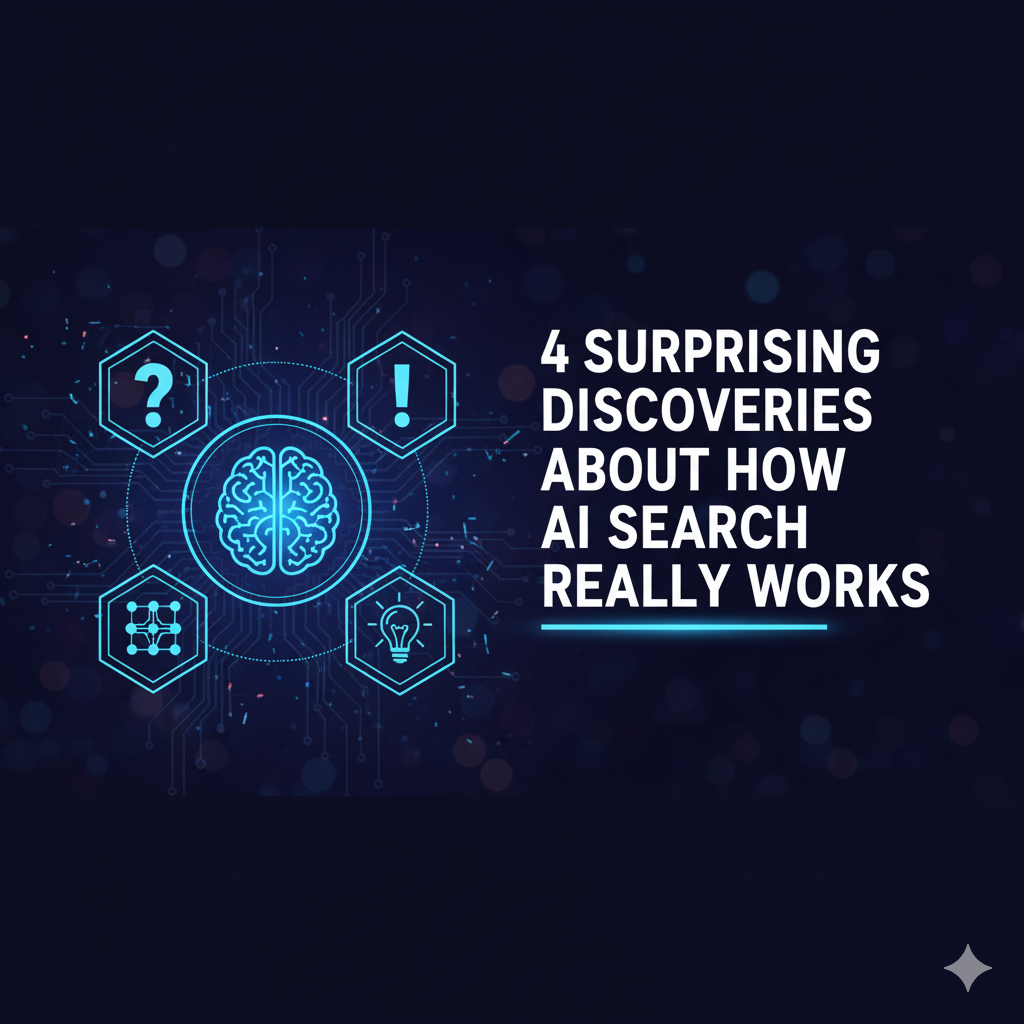
03 September 2025
4 Surprising Discoveries About How AI Search Really Works
Introduction
Search engines have transformed the way we access information, with artificial intelligence (AI) at the core of this revolution. Today, AI search is no longer just about matching keywords—it’s about understanding context, intent, and even predicting what users really want. By leveraging machine learning, advanced search algorithms, and deep insights into user behavior, AI search engines like Google and Bing are shaping a smarter digital experience. But how does it all really work? Here are four surprising discoveries that reveal the hidden mechanics of AI-powered search.
1. AI Search Understands Intent, Not Just Keywords
In the early days of search, typing “best Italian restaurant” simply pulled up pages stuffed with those exact words. Now, AI-driven search algorithms can interpret search intent—whether you’re looking for recipes, reviews, or nearby dining options.
For example, Google’s RankBrain uses machine learning to analyze billions of queries and predict what users actually mean. If you search “apple benefits,” the AI distinguishes whether you’re referring to the fruit’s health advantages or the tech company’s perks.
This discovery has reshaped SEO strategies: content creators must focus on answering user questions rather than merely repeating keywords. The better AI understands intent, the more personalized and accurate your results become.
2. Machine Learning Continuously Refines Search Results
Unlike static algorithms, AI search evolves through machine learning. Every click, scroll, and bounce provides feedback. When many users skip one result and click another, the AI interprets this behavior to adjust rankings.
Think of it like a teacher grading essays. If most students say one explanation makes sense, the teacher adopts it as the best example. Similarly, AI search learns what works by observing user behavior patterns at scale.
This dynamic learning process means that search engines are never truly finished. They’re in a constant cycle of improvement, ensuring that search results remain relevant as language, trends, and information evolve.
3. Search Algorithms Rely on Context Beyond the Query
A surprising element of AI search is how much context it uses. It doesn’t just read the query—it considers location, device, search history, and even time of day.
For instance, searching “coffee shops” at 7 a.m. from your phone will likely show you nearby cafés that are open now. At 8 p.m., the same query might highlight 24-hour coffee spots.
This contextual intelligence makes search highly personalized. However, it also raises discussions about privacy, as AI search systems balance convenience with concerns about how much data they track. The reliance on context shows just how far search engines have gone beyond simple text matching.
4. User Behavior Shapes the Future of Search
Perhaps the most surprising discovery is how much users themselves teach AI search. The collective actions of billions of people—clicks, voice queries, questions typed into chatbots—train AI to refine future responses.
For example, the rise of voice search (“Hey Siri” or “Ok Google”) has influenced AI to understand natural, conversational language. Queries like “What’s the best laptop under ₹50,000?” are no longer seen as fragmented keywords but as full questions needing direct, helpful answers.
This feedback loop ensures AI search keeps evolving to reflect real-world habits. As users shift toward multimedia queries (like image or video searches), AI adapts accordingly, making the future of search more intuitive and human-like.
Conclusion
AI search is far more advanced than most people realize. It goes beyond keywords to understand intent, evolves through machine learning, relies heavily on context, and learns continuously from user behavior. Together, these discoveries reveal why modern search engines feel almost predictive in how they serve results.
As you type or speak your next query, take a moment to consider how many layers of intelligence are working behind the scenes. The way you interact with AI search today is actively shaping the search experience of tomorrow.
What are your thoughts? Have you noticed search engines becoming smarter in predicting your needs? Share your experiences in the comments and let’s start a conversation about how AI is reshaping the way we discover information.
 Digital SEO Bull
Digital SEO Bull